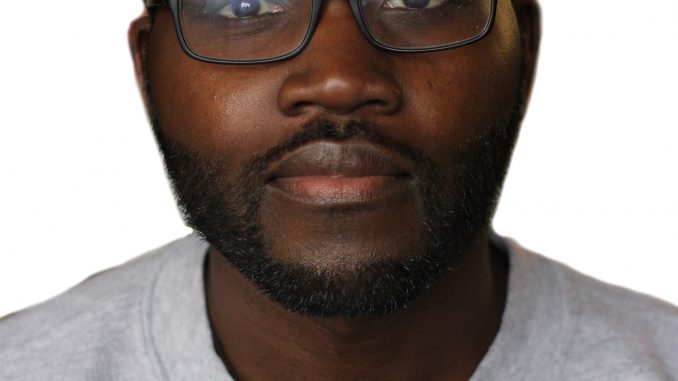
 As a fan of the Wu-Tang Clan, I was heartbroken when I heard that RZA, the leader of the nine-man group from Staten Island, New York, told Bloomberg News “all lives matter.” He followed that statement by suggesting black men be more aware of the type of image they portray.
As a fan of the Wu-Tang Clan, I was heartbroken when I heard that RZA, the leader of the nine-man group from Staten Island, New York, told Bloomberg News “all lives matter.” He followed that statement by suggesting black men be more aware of the type of image they portray.
Not long after, when asked on Fox & Friends about the lack of diversity in this year’s Oscars, “Clueless” star—no pun intended—Stacey Dash said channels like BET are a “double standard” to integration, and should be done away with. Ironically, BET, and other black outlets, have helped to keep her relevant for more than two decades. I was baffled.
I then thought of the black celebrities like Pharrell Williams, Raven-Symone and Common, to name a few, who in recent years inspired Twitter jokes, ruthless memes and scathing think pieces because their take on the black experience was myopic and off-base.
I was concerned for black people in pop culture. I can tolerate those who don’t speak up about racism—that’s not what I am looking for from them. But many are using their platform to downplay its effect, and that is just plain treacherous.
“[Those celebrities] don’t speak for the community, they speak for themselves,” said Lina Richardson, a Ph.D candidate of Urban Education. “It’s really about your proximity to struggle at the end of the day.”
I agree. Perhaps, as a celebrity in a higher class stratosphere, you can forget what it is like to be black in America.
Unless, you’re Beyoncé.
On the eve of the 50th installment of America’s unofficial “holy day”—the Super Bowl—I received a series of backlogged text messages from a good friend. One read: “Believe it or not, I needed… THAT NEW BEYONCÉ!” followed by 15 bee emojis.
When I arrived home later that night, I logged onto Facebook and saw my news feed flooded with status updates about a song called “Formation,” which was giving everyone “life.”
My curiosity led me to Google. I watched. I was not let down—not that my opinion matters, I’m not one of the women she’s urging.
She sang about black pride and feminism, with visuals of revolution in the video. She told us she likes her “baby hair, with baby hair and afros” and her “negro nose with Jackson Five nostrils.” And if that wasn’t enough, perhaps the most relatable moment of the song, is when she tells us she’s “got hot sauce in [her] bag.”
Yes, Beyoncé Knowles-Carter, the biggest pop star in the world, carries hot sauce in her bag. And, yes, for many, it is that serious.
The video, set in New Orleans, opened with her standing on top of a police cruiser sinking in the waters of the decimated city, as local social media star Anthony Barre, better known as Messy Mya, asks: “What happened after New Orleans?” Barre was gunned down leaving his girlfriend’s baby shower in 2010.
In the middle of the “Formation” video, police in riot gear surrender with their hands up to a black boy dancing, dressed in all black, with the video cutting to the words “STOP SHOOTING US” spray-painted on a wall.
Beyoncé’s position could not be more clear. She hit the mark that so many artists and celebrities have missed by miles. She let it be known that black people, with all of their hairstyles, shapes, sizes, shades, genders and preferences are beautiful and their lives matter.
I loved it—but again, that doesn’t matter. Her message didn’t stop at blackness, it pushed through to her feminism. Beyoncé was empowering black women, the core of the black community. She called for all of the ladies to “get in formation,” and warned if they don’t “slay” they “get eliminated.” She then destroyed the last bit of any wholesomeness left to her image when she told the world, with two middle fingers in the air, “When he f–k me good, I take his a– to Red Lobster.”
Unapologetically black, unapologetically woman.
Not even 24 hours after its release, during the halftime of football Christmas, Beyoncé managed to remind us of the Black Panthers’ 50th anniversary, as she and her dancers performed the new song dressed in black leather outfits honoring them. It is worth mentioning it was also Sandra Bland’s birthday.
The next day she announced her Formation World Tour and revealed she will start a fund to benefit the children of Flint, Michigan.
No artist since James Brown has had such undeniable influence, power and has been so explicit about black pride. While many noted black celebrities avoid or dance around race, Beyoncé, who is arguably bigger than the music industry, wrote a song about it, with lyrics and visuals that clearly let you know where she stands: on top of a police car sinking in the waters of New Orleans.
Darryl Murphy can be reached at darryl.murphy@temple.edu.


Be the first to comment